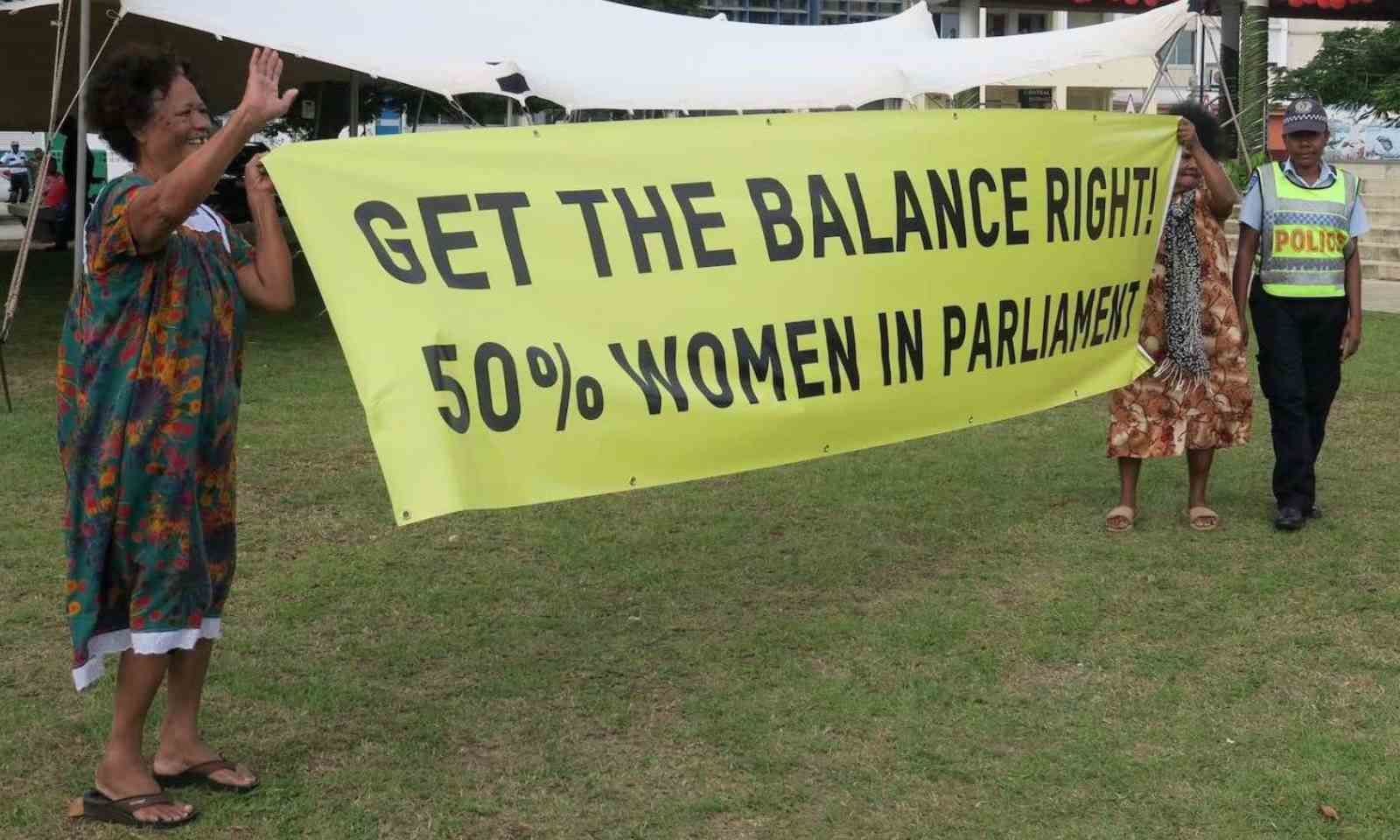

The proportion of seats held by Pacific women in their national parliaments ahve not changed since 2010, data shows.
Photo/supplied
Women in politics and public life
Pacific women should play a prominent role in politics, but how do they fare at parliament?


From CrossFit to Commonwealth Games: Sāmoan teen rises in NZ weightlifting scene

Second by-election confirmed as Sāmoa MP quits Parliament to join ruling FAST party


Pacific nations push back as organised crime targets region

From CrossFit to Commonwealth Games: Sāmoan teen rises in NZ weightlifting scene

Second by-election confirmed as Sāmoa MP quits Parliament to join ruling FAST party

While Pacific parliaments stand for gender equality, there are still fewer women than men in politics and public life at local, national, and regional levels, according to the International Parliamentary Union (IPU).
Over the years, the percentage of female MPs has dropped globally, IPU data shows. Only 25.6 per cent of parliamentary seats have belonged to women and it’s no different in the Pacific's 6.9 per cent.
In New Zealand, Parliament celebrated having a majority of women members for the first time in 89 years after Elizabeth McCombs was sworn in.
In 1893, a petition was rolled out across the debating chamber, calling for women to be granted the right to vote. Weeks later, more than 100,000 women enrolled to vote in the general election.
However, we can't say the same for our friends in Fiji. While more women than men vote in their election, only 10 per cent of the MPs are female.

The country’s gender assessment indicates a "significant" 81 per cent of Fijians agree women are under-represented at the decision-making level.
Minister for Women Linda Tabuya says she is concerned about the lack of empowerment of women and girls in all diversity across Fiji.
Addressing the Women’s Public Leadership Conference in Suva this week, Tabuya also raised her concerns at the low representation of females “and their rightful place in top positions at all levels, particularly within the esteemed chambers in our Parliament”.
The theme of the summit, hosted by Fiji’s Speaker Ratu Naiqama Lalabalavu, was ‘Empowering Women’s Participation at all Levels of Decision–making’.
“Like in many corners of the globe, our quest for gender equality has been marked by obstacles, yet illuminated by progress," Tabuya said.
“Despite our strides forward, the stark underrepresentation of women in leadership positions serves as a bleak reminder of the cultural and structural barriers entrenched within our societal fabric.
“A remarkable percentage of Fijians believe that it would be better for our country if there were more women in leadership roles and actively contributing to decision-making processes across the spectrum of politics and governance.
“Yet, we've got to confront the perplexing reality. Why do the corridors of power in Fiji across all echelons remain predominantly dominated by men?
“How do we explain the discrepancy between the population mentioned as supportive of women leadership and the fact that women received only 8 per cent of the votes in the 2022 general elections, despite there being 54 women candidates and only six getting elected?”
Listen to Jone Usamate’s address at the Women’s Public Leadership Conference in Suva.
Opposition MP Jone Usamate told the conference the international indicators signalled “a bad achievement” for the Pacific since 2010.
The former cabinet minister said the Pacific has fallen to the bottom of the global list, behind the Middle East and the North African region.
“Despite some of the substantial gains we've had in a number of Pacific Island countries over the past 25 years, it remains the only region in the world to have at least one parliament without any women members," Usamate said
“This is pretty bad so the reality for us in the Pacific is that national leadership and politics is still very much a male-dominated world.
“Half of Fiji’s population are women and girls. We know that women bring a different perspective to the table. If you want to get the best out of any country, you have to utilise all possible resources that you have.
“If you just have one particular perspective dominating, you get that particular perspective. So I think we are losing out. There's an opportunity cost for us in not getting that perspective to the table.
“We have reached this point in development as a nation by only using the insight. So what we have achieved so far in Fiji, we have largely used the insight and resourcefulness of only half of the gender that we have," Usamate said.
Tabuya also reflected on how she was treated earlier this year, after finding herself in the middle of an alleged sex and drug controversy.
The scandal cost her the deputy leadership of the People’s Alliance Party, after the party believed the allegations had caused ‘irreparable damage’.
But, Prime Minister Sitiveni Rabuka retained her as Women’s Minister saying there were no official complaints lodged against her and that he was not going to take action based on “unverified allegations”.
Listen to Linda Tabuya’s address at the Women’s Public Leadership Conference in Suva.